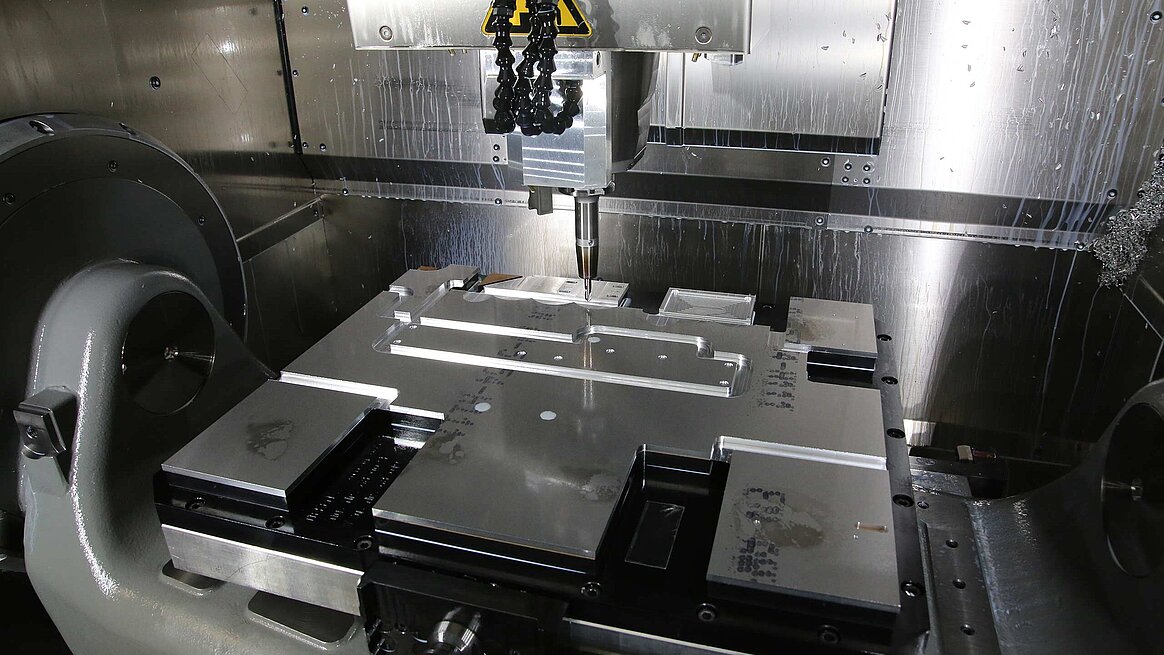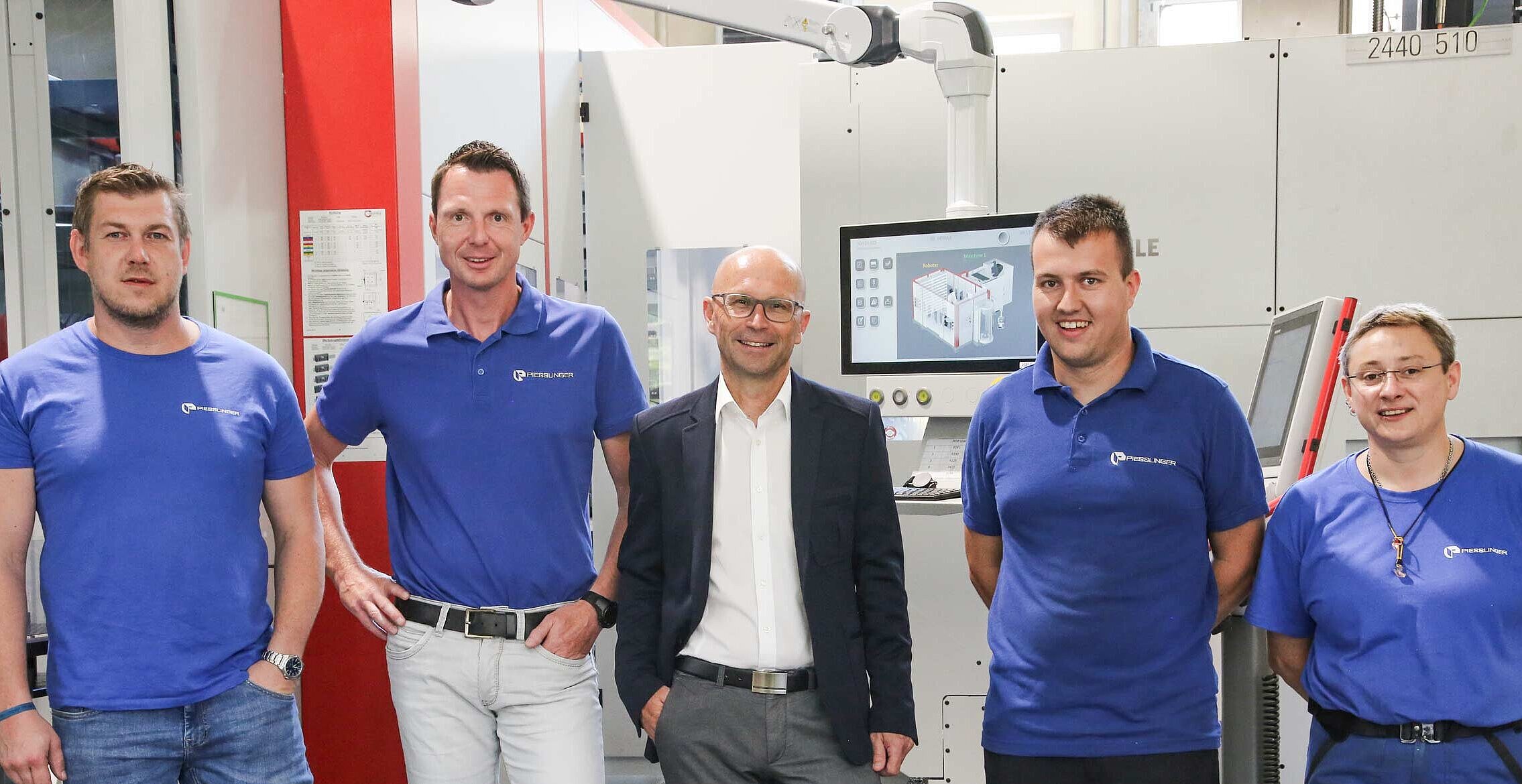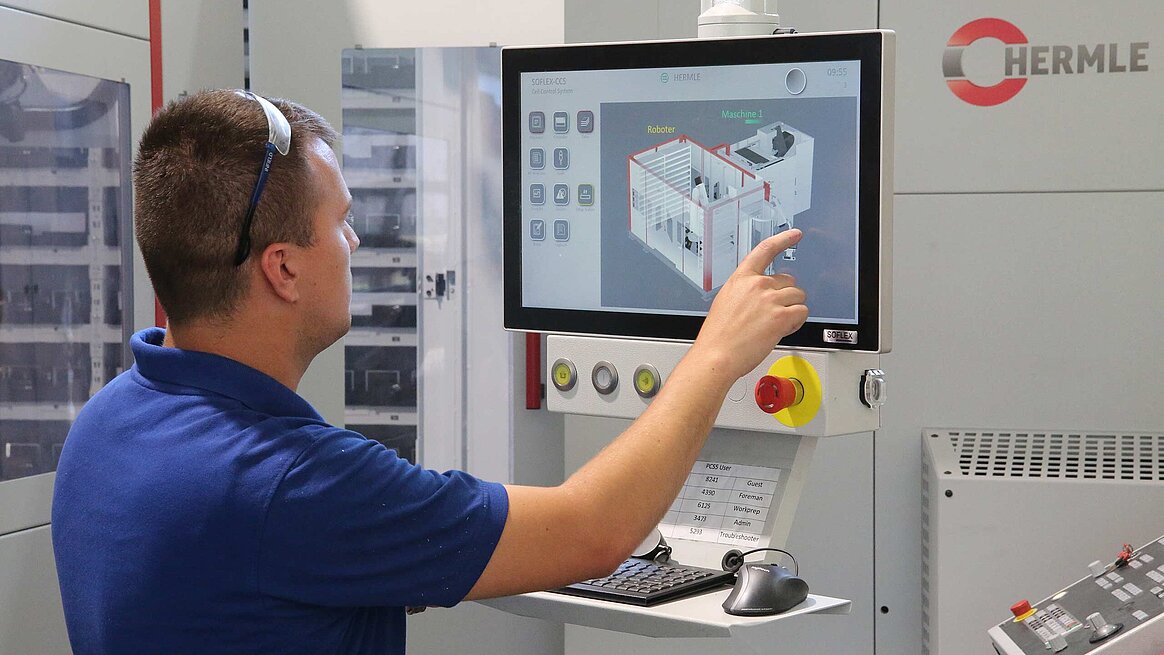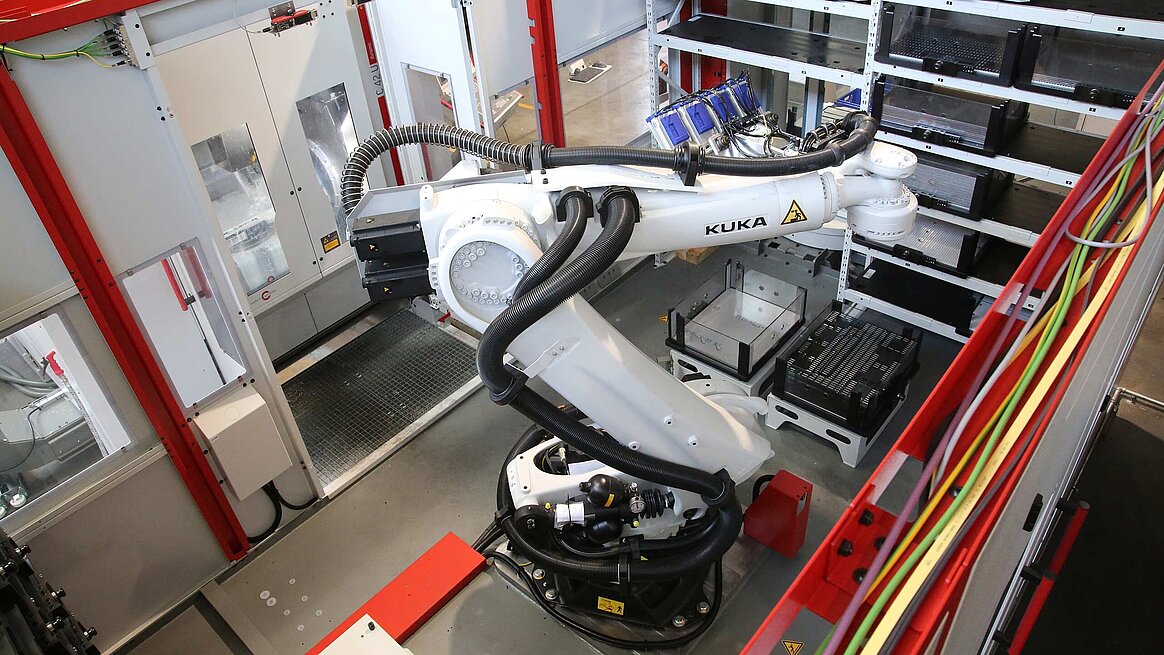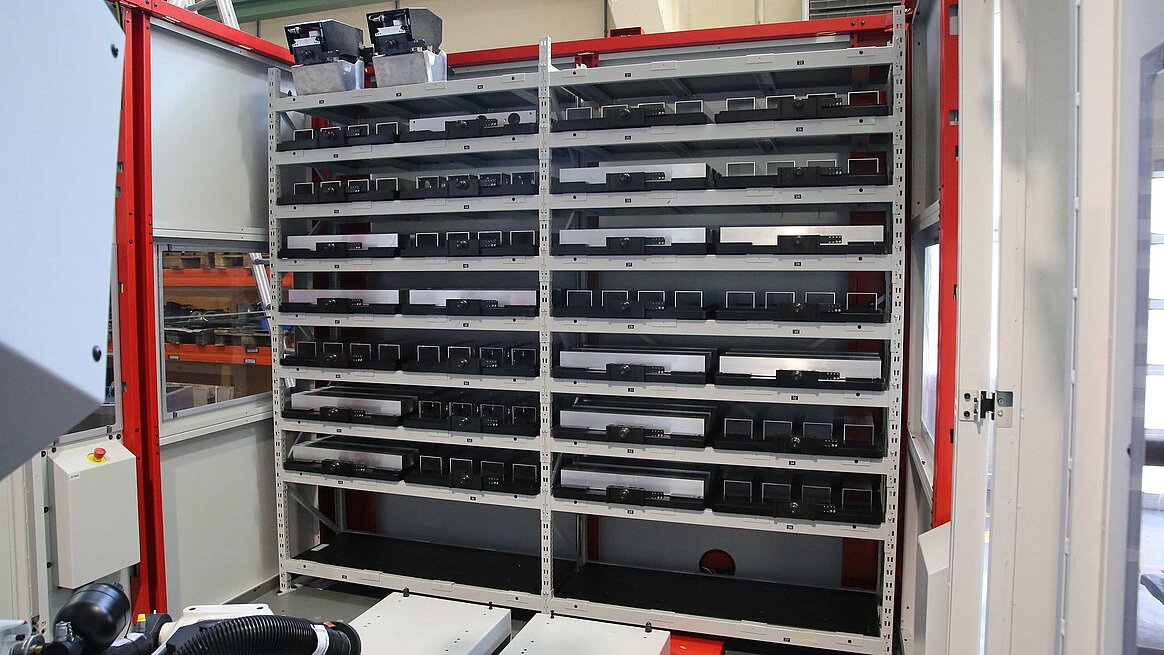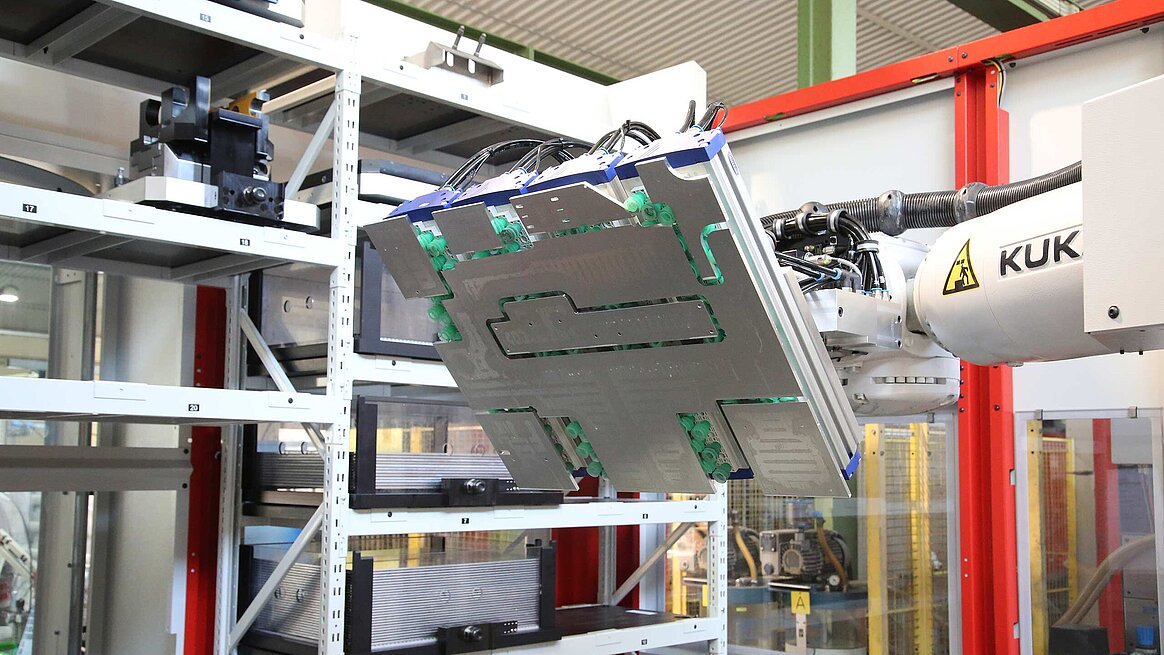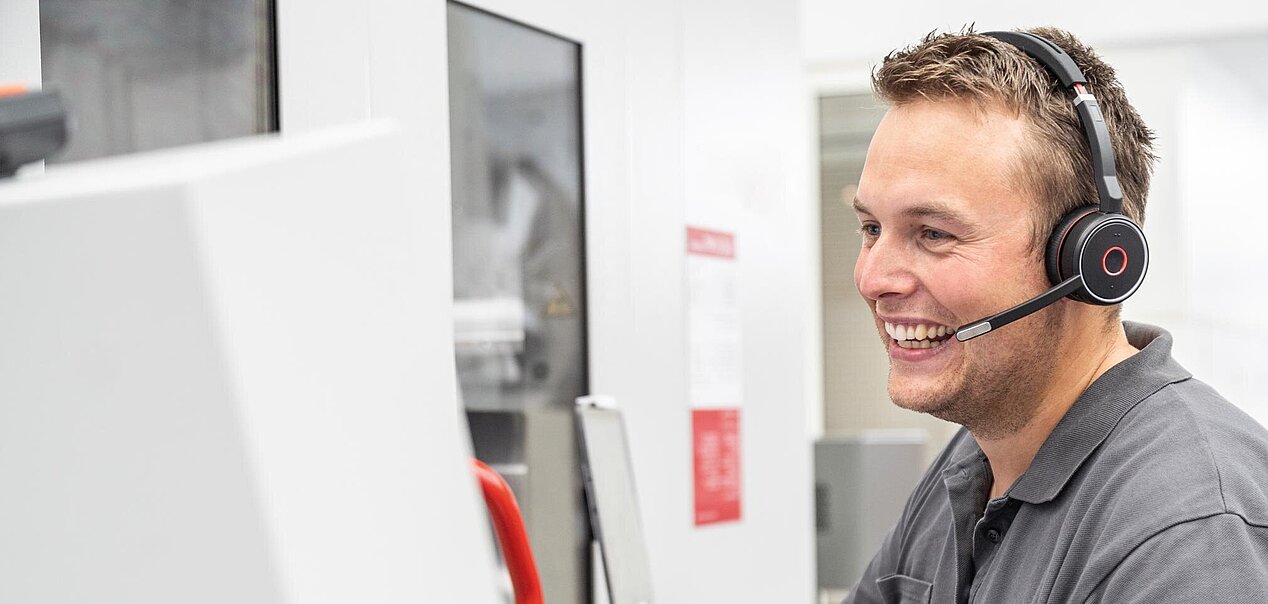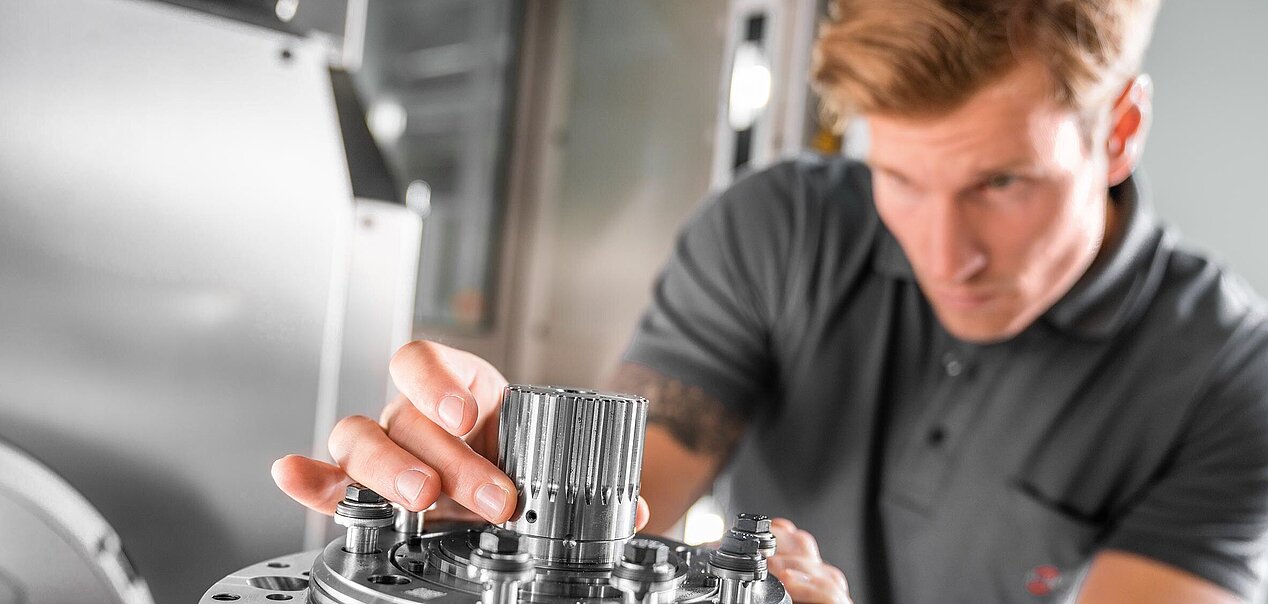C 42 U RS 2 | Piesslinger | Automation
Hermle provided support in the automation of parts manufacturing and demonstrated that different tolerances and difficult surfaces must not necessarily be a criterion for exclusion for unmanned machining.
Piesslinger is among the oldest companies in Austria. Its roots go back to a scythe forging shop founded in 1553 in Molln in Upper Austria. The family-owned business today with more than 400 employees specialises in aluminium components and surface technologies.
The aluminium component sector employs about 90 employees predominantly mechanically finishing aluminium as profiles and sheets. The clients are from the plumbing, medical technology, sports and audio systems sectors. "Our customers primarily come from the premium price sector – major orders include maximally 100,000 pieces per year with typical manufacturing lots being in the range of 200 to 1,000 pieces," Roland Hackl, Section Manager Aluminium Components from Piesslinger explains. He considers the broad range of manufacturing options, starting from machining via punching, bending or canting up to the following surface finishing such as grinding, polishing or brushing, powder coating or anodizing as the ultimate strength of the company.
Automation project to secure the future of the location
To remain competitive with machining, Piesslinger wanted to enter into the automated parts manufacturing about three years ago already. "Therefore it was the objective to be able to produce specific sheet or profile parts more efficient by automation and at the same time fully utilise the new machining centre with them," Hackl explains. The challenge was not only the small numbers. "It turned out to be a big difficulty in our project that we have tolerances of ± 5/10 millimetres for our extruded profiles. Still, the parts finally had to be milled precisely to the ± 1/10 millimetre. These differences in tolerance had to be compensated by appropriate devices and an intelligent clamping concept," the Section Manager explains.
To remain competitive with machining, Piesslinger wanted to enter into the automated parts manufacturing about three years ago already. "Therefore it was the objective to be able to produce specific sheet or profile parts more efficient by automation and at the same time fully utilise the new machining centre with them," Hackl explains. The challenge was not only the small numbers. "It turned out to be a big difficulty in our project that we have tolerances of ± 5/10 millimetres for our extruded profiles. Still, the parts finally had to be milled precisely to the ± 1/10 millimetre. These differences in tolerance had to be compensated by appropriate devices and an intelligent clamping concept," the Section Manager explains.
